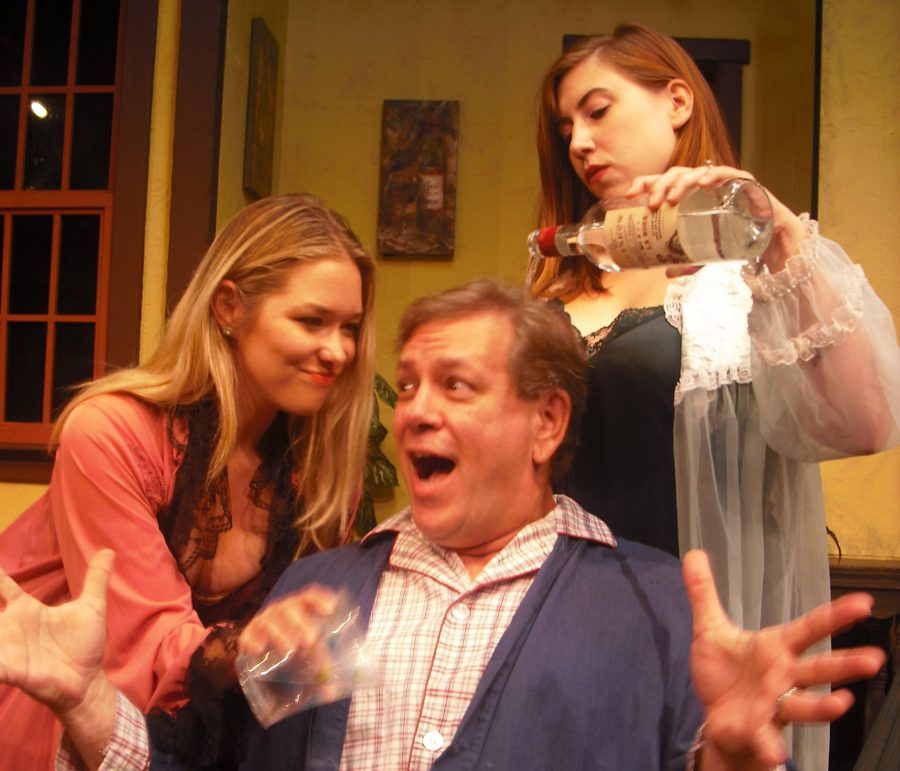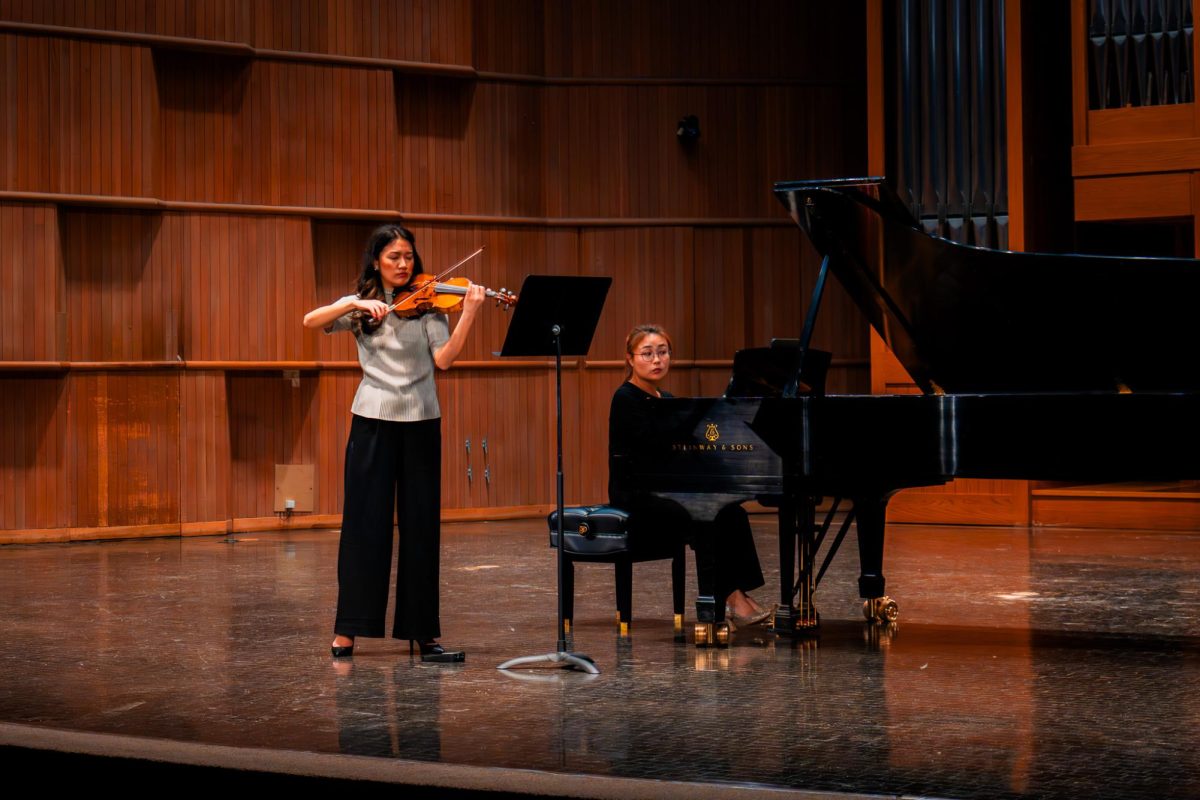There is something irresistible about seeing someone’s heartbreak from 20 feet away. This month, “Don’t Dress for Dinner,” Marc Camoletti’s French spoof of marriage and infidelity, runs at the Sheldon Vexler Theatre from Aug. 17 to Sept. 10.
In the current age of Tinder, Bumble and AshleyMadison, “Don’t Dress for Dinner,” begins with a relatable premise. Married couple Bernard and Jacqueline are dying to cheat on each other: Bernard with mistress Suzy, Jacqueline with Bernard’s best friend, Robert.
There’s the cook who gets mistaken for the mistress. The mistress who gets mistaken for the cook. Such are the increasingly confusing, improbable circumstances in which the quintet of lovers find themselves. Audiences can expect a night of earnest laughs as the cast bumps, thumps and humps their way to a satisfying “all’s well that ends well” conclusion.
But can The Vexler’s live-action bedroom romp really compete for the weekend audiences it hopes to attract?
After all, weekend nights and Sunday matinee hours fall into prime Netflix-and-chill binge-watching territory. Considering we are in the midst of what some have dubbed a golden age of television, where celebrity-studded romantic comedies like “The Mindy Project” and “Master of None” await the mere press of a button.
Frankly, a cozy night in has never been more attractive.
However, as this is a bi-weekly column dedicated to theatre and performance in San Antonio, let’s address “Don’t Dress for Dinner” and—hell, why not make a synecdoche out of it—all local theatre on more generous terms.
In some ways theatre today faces in streaming services what oil painting faced in photography 100 years ago. That is, the average local theater can never again be expected to match the show-stopping realism routinely captured by a camera lens and a multimillion dollar budget.
Over the web, viewers can simply access more entertainment and better entertainment more easily than ever before.
Just as painting responded to photography’s ability capture realism by embracing its own symbolic and psychological possibilities in cubism, impressionism and surrealism, theatre today can (and should) capitalize on its current moment of uncertainty to forge a new identity in the public imagination.
As such, this column will avoid typical, ‘thumbs-up/ thumbs-down’ type reviews.
Instead, this column will make the case for going out to see a live show in more anagogic terms. That is, I argue audiences should go see “Don’t Dress for Dinner” this month with the same expectation a Christian goes to church: to sit, listen and think.
Let’s try that now.
Early on in “Don’t Dress for Dinner,” a throw-away line establishes the play’s most interesting aspect—my number one Reason to Watch. To save his hide, Robert pressures hired chef Suzy into playing the role of his mistress.
The stakes could not be higher. So in desperation, Robert appeals to one of society’s moral golden standards: the sanctity of marriage.
Robert: But surely you want to save the situation, just as much as I do? You don’t want to see their marriage bust up, do you?
Robert makes clear that if Suzy refuses to play along, the evening—and perhaps an entire marriage—will be ruined.
Hence the social context of the play turns upon the virtue of keeping intimate relationships whole, even those as problematic as Bernard and Jacqueline’s relationship. Rather than calling for an end to its myriad affairs altogether, “Don’t Dress” makes the case again and again for its ubiquitous affairs to remain thinly disguised.
Tension within the play results not so much from whether any given affair will be revealed. Rather, its tension stems from the possibility that an affair will prove so blatant as to force one lover to confess the open secret of their infidelity.
For this millennial reviewer, “Don’t Dress” is not, as advertised, a play about monogamy’s inherent laughs.
It stands rather as a meditation on the seemingly unavoidable co-dependences our lives attract, the web of competing desires that somehow—as if by magic—mold us into flawed but functional human beings.
“Don’t Dress for Dinner” writes itself into meaningfulness by populating this relatable, interpersonal grey area with characters that ape our daily temptations, but don’t take my word for it.
Go see it yourself.









